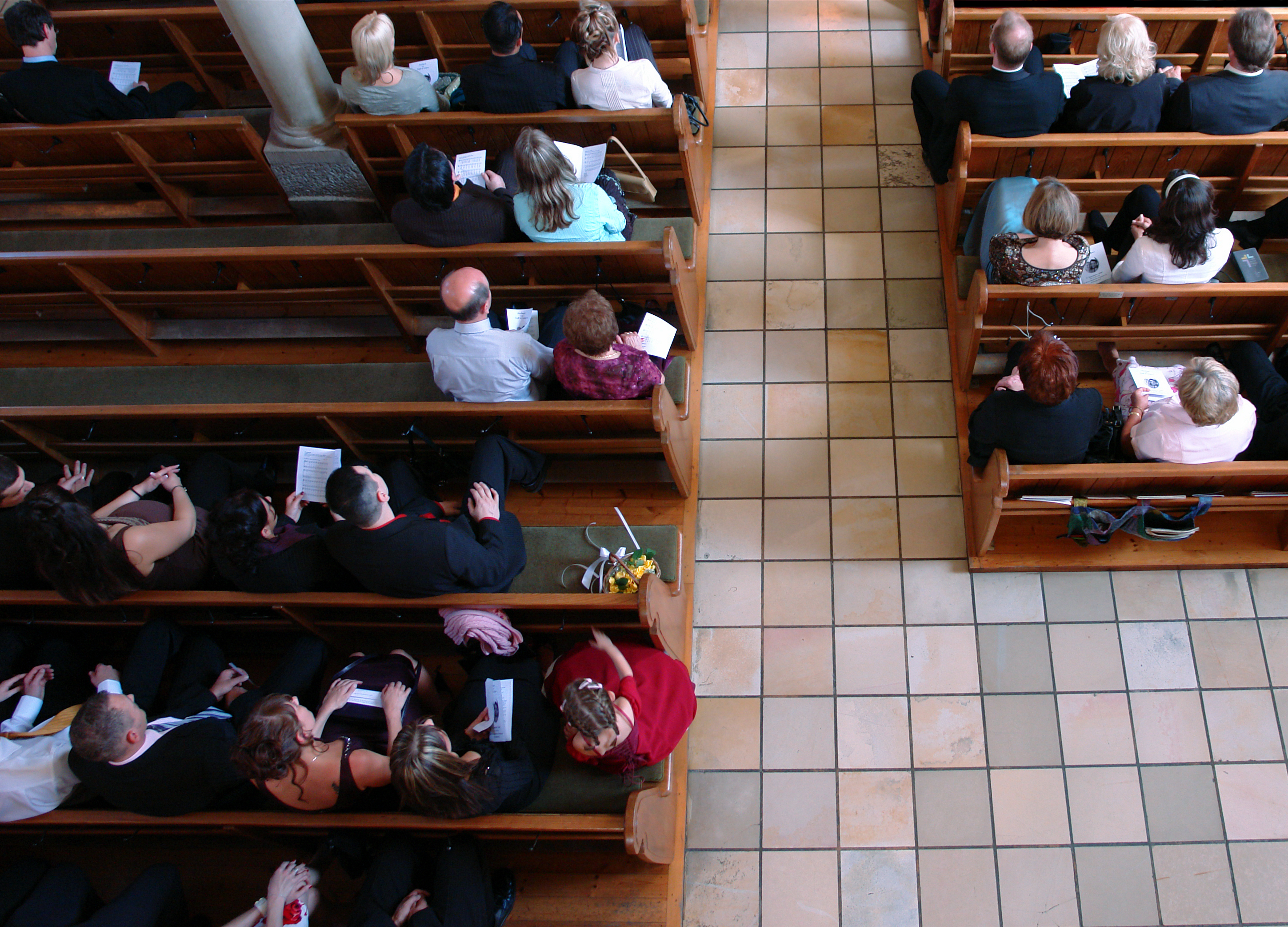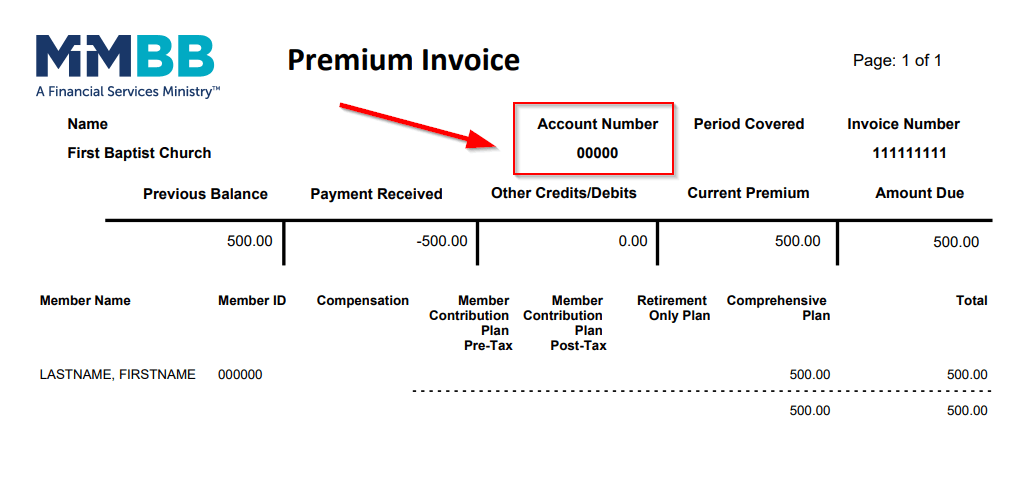Dear MMBB Family:
As we continue to grapple with the continuing effects of the COVID-19 global pandemic, the pace of change is rapid and ongoing. It can be challenging to keep up with the volume of information whether it concerns the rising number of people stricken with the disease and its rapid spread, the shifting market and investment environment, or understanding the details of the recent stimulus legislation passed by Congress and its impact on pastoral leaders, churches and faith-based organizations.
We take seriously MMBB’s fiduciary responsibility and ongoing commitment to serve our members. Therefore, we strive to ensure that the information presented about the CARES Act is accurate and reflects the clearest understanding of the specific provisions available to non-profits, clergy, churches and other religious entities. We appreciate your patience as we exercise our due diligence to examine multiple legal, financial, and legislative resources.
To that end, below is a list of frequently asked questions about the CARES Act. We hope this offers a clear explanation of what is available to members and employers, and the procedures you need to follow to apply for assistance and various benefits.
Our Service Center is available to answer questions that apply to your individual needs. Please call us at 800.986.6222 or email us at [email protected].
May you, your families and your congregations remain healthy and safe and continue to find hope in the knowledge that God is our refuge and strength.
Grace and Peace,
Louis P. Barbarin, CPA
Chief Executive Officer
CARES Act Frequently Asked Questions
General Information
On March 27, 2020 President Trump signed the Coronavirus Relief, Aid and Recovery Economic Act (CARES Act), which is intended to “provide emergency assistance and health care response for individuals, families and businesses affected by the 2020 coronavirus pandemic.” The types of assistance are broad and complex, covering many different aspects of American life. These FAQs will focus on those aspects that may be the most impactful for MMBB’s members and employers.
Relief for Individuals
Recovery Rebate
The Recovery Rebate is an advance on a 2020 tax credit to be distributed to eligible taxpayers in 2020.
Who is eligible?
All U.S. residents who are not dependents of another taxpayer and who have a work eligible social security number may be eligible to receive a recovery rebate depending on their 2019 tax return.
What if I did not file a 2019 tax return?
The most reliable way to obtain the rebate is to file a 2019 tax return. However, if you did not file a 2019 tax return, the IRS will use your 2018 tax return. The IRS has been instructed to conduct a public awareness campaign and include instructions to claim the rebate for those who did not file a tax return in 2019 or 2018. Seniors with low incomes may be able to receive rebates based on their forms SSA-1099 Social Security Benefit Statement, or RRB-1099 for railroad employees.
What is the amount of the rebate?
$1,200 cash payment for individuals and $2,400 for joint filers with incomes under the phase out threshold.
Is there other income available?
An additional $500 is available for each qualified child.
What is the income threshold?
$75,000 adjusted gross income for eligible individuals, $112,500 for head of household filers and $150,000 for joint filers.
What if my income exceeds the income threshold?
The amount of the rebate is reduced by $5 for every $100 earned over the income threshold ($75,000 adjusted gross income for eligible individuals, $112,500 for head of household filers and $150,000 for joint filers ) with no rebate to those who receive over $99,000 per individual, $146,500 head of household filers with one child and $198,000 for joint filers with no children.
Eligible taxpayer’s whose income is in the income range will still receive a partial rebate. If a taxpayer’s income in 2020 is lower than in 2019 they may qualify for a tax credit when filing their 2020 tax return adjusted by any rebate already received.
I am retired, can I still receive a rebate?
Yes, if you meet the other requirements and your income is within the phase out threshold, you will receive a recovery rebate payment.
Unemployment Benefits
I am no longer employed, but do not qualify for unemployment.
The CARES Unemployment Act temporarily expanded benefits to include many individuals not traditionally eligible for unemployment benefits such as those who are self-employed, independent contractors, those with limited work history and others. This expansion continues through December 31, 2020.
Was there any change in the amount of unemployment benefits?
The CARES Act provides $600 per week of unemployment benefits in addition to state unemployment benefits for up to 4 months through July 31, 2020.
How long can I collect unemployment benefits?
The CARES Act provides an additional 13 weeks of federally funded unemployment benefits beyond the standard 26 weeks through December 31, 2020, if state benefits are no longer available. The amount of the benefit will be the same as the state provided benefit.
Student Loan Relief
What can I do about my student loan debt?
Payments on federal student loan principal and interest can be deferred without penalty through September 30, 2020. Notices will be sent to borrowers about this deferral. Borrowers have the option to continue payments if they wish.
Are there any other provisions related to student loans?
Employers are permitted to contribute up to $5,250 annually toward an employee’s student loans from March 27, 2020 through December 31, 2020. This payment can be made to the employee or directly to the lender and does not count as taxable income for the employee.
RMDs
How does the CARES Act affect my RMDs?
The SECURE Act, passed in December 2019, pushed back the age that retirement plan participants need to take required minimum distributions (RMDs) from 70½ to 72, for those who were not 70½ by the end of 2019. If you were required to take an RMD in 2019 or earlier, nothing changed for you. However, the CARES Act, passed on March 27, 2020, temporarily supersedes the RMD provision of the SECURE Act by waiving all RMDs for those required to take them in 2020. The temporary RMD waiver applies to all individuals who were subject to an RMD requirement in 2020, not just those who may have been impacted for COVID-19.
If I haven’t yet taken an RMD but am 72 or older, do I still need to take an RMD in 2020?
Since the CARES Act waived RMDs for everyone in 2020, no one needs to take an RMD this year unless they wish to do so.
What does the CARES Act mean for those who have already taken RMDs in 2020?
If you’ve taken an RMD already this year, you have up to 60 days from distribution to re-contribute the amount back into an eligible retirement account or IRA – assuming the distribution qualifies for a rollover.
What if I took my 2020 RMD more than 60 days from distribution?
You may still be able to re-contribute the distribution if you can show you’ve been affected by the coronavirus in the following ways:
- if you, a spouse, or somebody in your household contracted the virus,
- or if the virus negatively affected you financially (such as making you unable to work or causing you to be laid off).
You may be able to count the distribution as coronavirus-related and re-contribute the amount over the next three years.
How does the RMD waiver affect MMBB members?
MMBB members who have taken RMDs in 2020 have 60 days from distribution to roll over RMDs to their MMBB accounts. MMBB is determining the details of how we will implement the waiver of RMDs related to our plans. We will provide information about the process to re-contribute RMD money to MMBB accounts on the MMBB web site in the days to come.
Distributions
What provisions does the CARES Act provide for me to take funds from my retirement plan?
Under the CARES Act, the federal government has created a special Coronavirus Related Distributions’ (CRDs) category for certain qualified retirement plans, including 401(a), 401(k) and 403(b) plans. Eligible individuals can take up to a total of $100,000 in distributions from their qualified retirement plans.
Can I take a CRD from my MMBB administered account?
CRD withdrawals can be taken from elective deferrals in the Member Contribution Plan. Please contact the Service Center at 1-800-986-6222 or [email protected] for more information.
Can I take a CRD distribution if I am under 59 ½?
Yes, eligible CRD distributions will not be subject to the 10 percent early withdrawal penalty that applies to withdrawals made prior to age 59 ½.
Who is eligible for a CRD distribution?
A CRD distribution from an eligible retirement plan is available to a person who:
(1) has been diagnosed with COVID-19,
(2) whose spouse or dependent has been diagnosed with COVID-19, or
(3) who experiences negative financial consequences as a result of:
• being quarantined, furloughed, laid off or having reduced work hours,
• being unable to work due to lack of childcare as a result of COVID-19,
• closing or reducing hours of a business owned or operated by the person due to COVID-19 or other factors that the Treasury Secretary determines apply.
How much time do I have to repay the CRD?
You can pay back the funds to a qualified retirement plan over the period of three years beginning the day after the date when you receive a CRD. The funds which are repaid will not be recognized as income for tax purposes. You will still owe income taxes on amounts you withdraw that you don’t repay, but you can spread the tax payment on the CRD income over three years.
Loans
What provisions does the CARES Act make regarding loans from retirement plans?
Generally, loans you take from a qualified retirement plan account (401(a), 401(k), 403(b) and government plans) are limited to the lesser of $50,000 or 50 percent of your vested balance, and you must pay the loans back within five years. The CARES Act doubles these retirement plan loan limits for people eligible for a CRD to the lesser of $100,000 or 100 percent of the participant's vested account balance. To qualify, you must take the loan within 180 days after the enactment of the CARES Act. You won't owe income tax on the amount borrowed from your retirement account if it's paid back within five years.2 Unfortunately, MMBB plans will not be offering the increase of plan loan limits.
What if I currently have an outstanding loan from my retirement plan with a repayment due in 2020?
Also, qualified individuals with an outstanding loan from their plan (i.e., one taken before the CARES Act was enacted) with a repayment due between March 27, 2020, and December 31, 2020 can delay loan repayment. However, interest will continue to accrue on these delayed payments. The delayed repayments of loans will restart on January 1, 2021.
Important Considerations: “Before you determine whether to borrow from your retirement account, consider some of the advantages and drawbacks to your decision. Some advantages include the following:
- you usually don't have to explain why you need the money or how you intend to spend it,
- the loan fees and interest rate might be lower than those available on a personal loan or a credit advance,
- and the interest you repay is paid back into your account.
Some disadvantages include the following:
- the money you withdraw will not grow if it isn't invested,
- repayments are made with after-tax dollars that will be taxed again when you eventually withdraw them from your account.
- also, if you lose your job, the loan generally will be considered a withdrawal on which you must pay income tax.”
Relief for Employers
What provisions of the CARES Act applies to churches and church-related employers?
The CARES Act provides several forms of relief that churches and church-related organizations may be able to utilize. These include the Paycheck Protection Program Loan, Emergency Economic Injury Disaster Loan, a limited payroll tax credit, and the delay of payment of payroll taxes for a limited period of time.
What is a Paycheck Protection Program (PPP) Loan?
This is a loan through the Small Business Administration (SBA) available to most businesses with fewer than 500 employees. 501(c)(3) nonprofit organizations, including churches, may qualify for this loan. A portion of the loan may be eligible for forgiveness.
What do I need to apply?
You will need to complete the PPP loan application and submit the application with the required documentation to an approved lender that is available to process your application by August 8, 2020. Click HERE for the application.
What is the PPP loan for?
The loan can be used for financing working capital, refinancing existing debt, and/or for financing the purchase of furniture, fixtures, machinery, equipment, land/buildings or a business.
How much is the PPP loan?
The lesser of $10 million or 2.5 times the employer’s average total monthly payments for payroll costs over the previous one-year period.
What is the term of the PPP loan?
10 years for any portion not forgiven.
How much is eligible for forgiveness?
With some limitation, the portions of the loan that are used for: (1) payroll costs, (2) mortgage interest, (3) rent payments, or (4) utility payments.
What are the limitations on PPP loan forgiveness?
The amount of loan forgiveness will be reduced by a formula that takes into account any reduction in the number of employees between February 15, 2020 and April 26, 2020 and by a dollar-for-dollar reduction for any salary reduction during the same period beyond 25 percent of employees earning less than $100,000. However, this may be adjusted further for rehires and salary restoration.
When are PPP loans available?
They are available between April 3, 2020 and August 8, 2020, however, there are limited funds available, so it is best to apply as early as possible.
Are there fees for applying?
According to the U.S. Treasury Department, lenders and their agents are not permitted to charge borrower’s fees for applications.
What is an Emergency Economic Injury Disaster Loan (EIDL)?
These are loans offered to small businesses to cover costs for businesses affected by disasters. The CARES Act relaxed certain requirements, particularly the requirement that a business exhaust other funding options before obtaining an EIDL. In addition, the EIDL provides an immediate $10,000 advance grant to borrowers while they await the processing of the application. This advance does not have to be repaid even if the application is denied.
How much is an EIDL?
These loans are for as much as $2 million for a term of up to 30 years determined on a case-by-case basis.
Are there limitations to the EIDL?
The $10,000 advance cannot be applied to the same payroll costs of a PPP loan. However, an eligible business can receive both an EIDL and a PPP loan.
What is the payroll tax credit?
This is a refundable payroll tax credit for 50% of wages paid by employers whose (1) operations were fully or partly suspended due to a COVID-19 related shut down order, or (2) gross receipts declined by more than 50% when compared to the same quarter in the prior year. The amount of the credit depends on the qualified wages paid to the employee.
What is the payroll tax deferral?
Employers may defer payment of the employer share of the Social Security tax they would otherwise pay from March 27, 2020 through December 31, 2020. The deferred taxes will have to be paid over the two-year period between January 2021 and December 31, 2022.
Are there any limitations to the payroll tax deferral?
Note: This program is not available to any employer that has a PPP loan forgiven.
Emergency Assistance and Comprehensive Plan Premium Assistance
Is MMBB providing any assistance to its members or employers?
As part of its mission “…to promote interest in the better maintenance of the ministry,” MMBB provides assistance to its members and employers through our non-contractual benefits program.
I am an MMBB member and I am experiencing financial hardship, can MMBB help?
On a case-by-case basis, MMBB provides limited tax-free emergency financial assistance to ordained members and active lay members based on need. Due to the extraordinary and unique circumstances of the COVID-19 pandemic, the assistance available is limited to one $3,500 grant per member to ensure sufficient funds are available to address a variety of needs.
My church is unable to continue paying my Comprehensive Plan premiums. What are our options?
MMBB will place qualifying ordained pastoral leaders on a $10 a month continuance paying these premiums on behalf of the employer for up to 2 years. This will allow pastoral leaders to maintain important group term life insurance and disability benefit protections through the Comprehensive Plan. While the pastor is enrolled in this continuance program, any life insurance or disability benefits will be based on the average lifetime compensation used to pay Comprehensive Plan premiums.
Please contact MMBB at 800.986.6222 or [email protected] for information about either of these programs.
Resources:
https://www.irs.gov/coronavirus
https://home.treasury.gov/coronavirus
https://home.treasury.gov/cares
https://www.sba.gov/
https://covid19relief.sba.gov/
The information contained herein is for informational purposes only. While MMBB made every attempt to ensure that the information is accurate, MMBB is not responsible for any errors or omissions or the results obtained from the use of this information. MMBB is not liable for any success or failure that is directly or indirectly related to the use of the information contained herein. The information contained herein does not constitute any financial, insurance, investment, legal, or tax advice. In no event shall, MMBB and/or its fiduciaries, directors, officers, employees, or agents thereof be liable for any special, direct, indirect, consequential, or incidental damages or any damages whatsoever, whether in action of contract, negligence or tort, arising out of or in connection with the use of the information contained herein.
Back to Financial Resource Center








